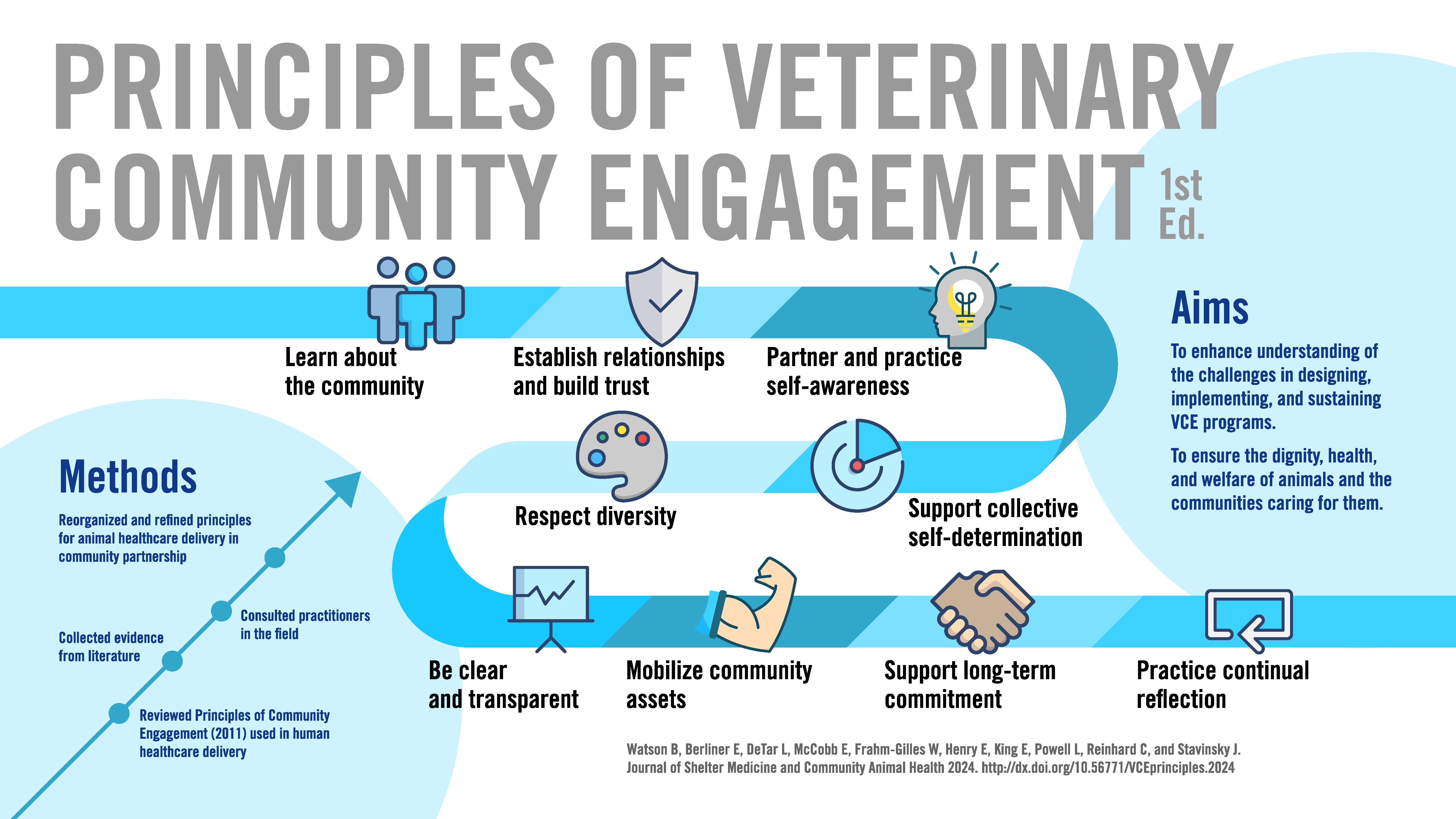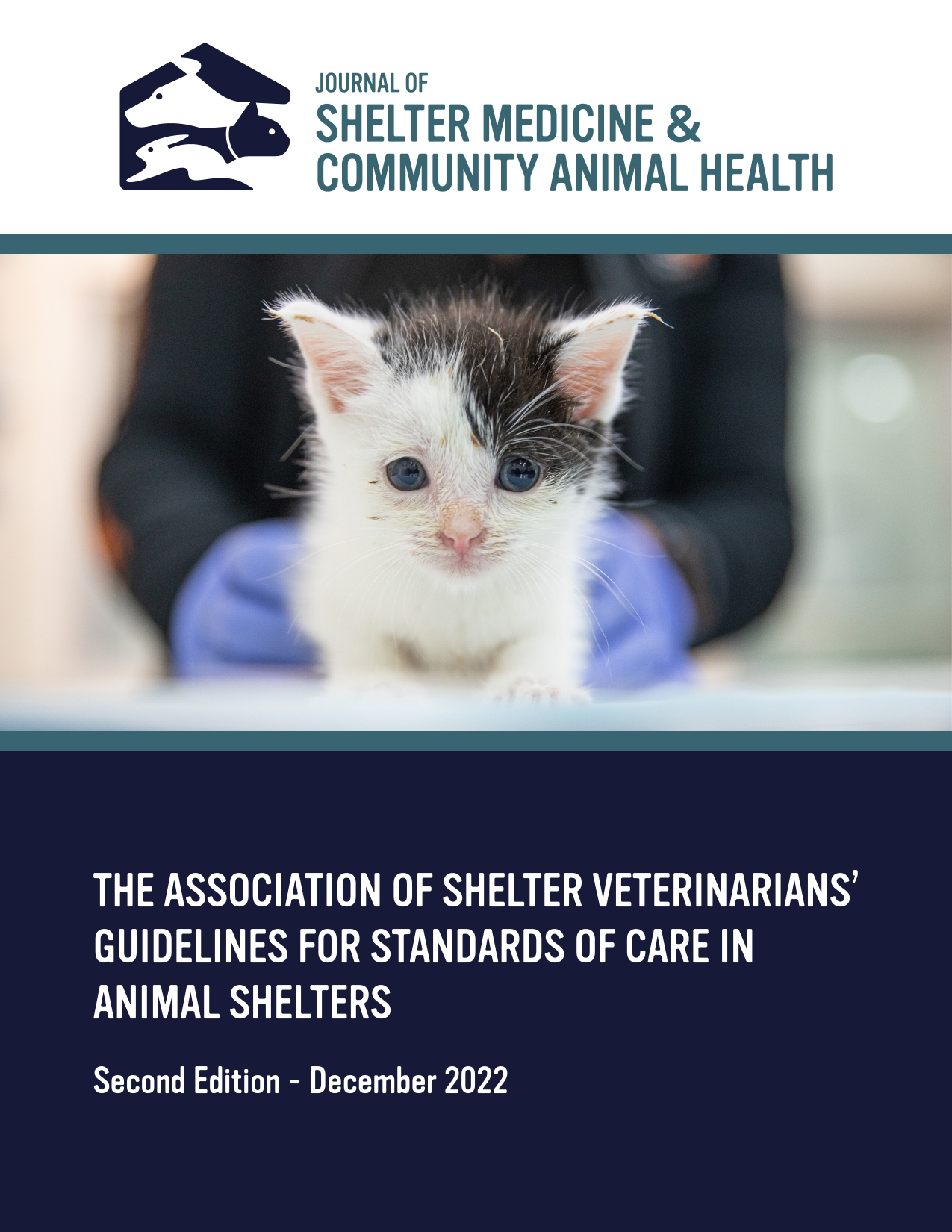Principles of Veterinary Community Engagement
First Edition 2024
DOI:
https://doi.org/10.56771/VCEprinciples.2024Abstract
These Principles of Veterinary Community Engagement are closely adapted from the 2nd Edition of the Principles of Community Engagement, published by a coalition of human health agencies to guide human healthcare programs. This publication echoes their original nine principles but has been reorganized and refined to focus on programs providing healthcare services to animals.
When engaging with the animals and families in marginalized, underserved, or underrepresented communities, the veterinary medical field has opportunities and responsibilities. Project volunteers are often excited and passionate, and if guided well, their efforts can have significant impacts for people and their animals. Unfortunately, good intentions do not guarantee positive outcomes. The goal of the document is to enhance understanding of the challenges in designing, implementing, and sustaining VCE programs, and to ensure the dignity, health, and welfare of animals and the communities caring for them.
Our field has an obligation to identify and follow evidence-based ethical engagement practices refined through decades of research from human health engagement programs. As VCE continues to gain momentum in academic and research settings, the public sector, philanthropic organizations, and veterinary student training programs, formal guidelines for such engagement have become necessary.
Downloads

Published
Issue
Section
License
Copyright (c) 2024 The Authors

This work is licensed under a Creative Commons Attribution 4.0 International License.









